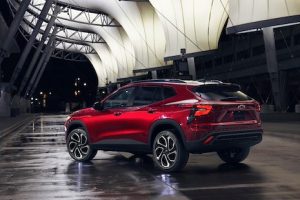New, Stricter Requirements for Electric Vehicle Tax Credits in 2024 Are Inspiring Lease Credits
Have you heard about the revised federal EV tax credit (now officially named the “Clean Vehicle Tax Credit”) that offers up to $7,500 towards purchasing new EVs and plug-in hybrid electric vehicles (PHEVs) sold in the United States? Thanks to changes made through Inflation Reduction Act revisions, popular manufacturers like Tesla, GM and Toyota can once more qualify for this incentive and even used vehicles can receive up to a $4,000 credit when purchased here in America.
One not so great change was the addition of restrictions that require EVs to meet stringent battery component sourcing and assembly criteria to qualify for tax credits for new vehicle purchases. Although these requirements will increase employment in North American battery, component and vehicle manufacturing, in the short-term they have drastically restricted eligibility for Clean Vehicle Tax Credits.
Before the new requirements went into effect, 147 vehicle models qualified for the previous-generation EV tax credit. Following implementation (and with more EVs on the market), only 18 eligible for full $7,500 Clean Vehicle Tax Credit are still eligible (here’s a current list). Of those eligible for partial ($3,750 tax credits, only three vehicles on 2024’s list of cheapest electric cars (Chevy Bolt EUV (which also made that list) and Volkswagen ID.4 remain eligible).
What Is an Electric Vehicle Lease Tax Credit Loophole? However, as is often the case with tax code provisions, there exists a significant loophole – let’s call it the “EV Lease Tax Credit Loophole”. What exactly is this loophole?
In brief: Leasing vehicles is considered commercial vehicle under the Inflation Reduction Act and qualified for up to $7500 tax credits without being subject to strict sourcing, battery or North American assembly requirements that come into effect with new consumer EV purchases.
Specifically, the tax code that created the EV lease tax credit loophole is known as the Commercial Clean Vehicle Credit and eligibility for this $7,500 incentive requires only that your EV battery must contain at least 7kilowatt hours (I have yet to come across an EV that does not meet this criterion; many plug-in hybrid and PHEV models also qualify).








+ There are no comments
Add yours